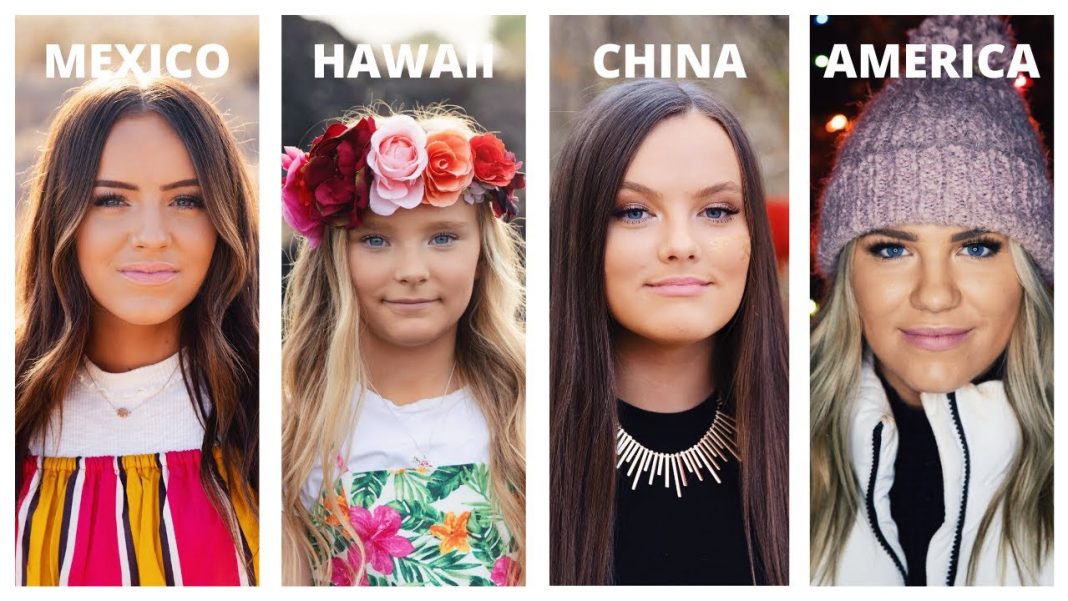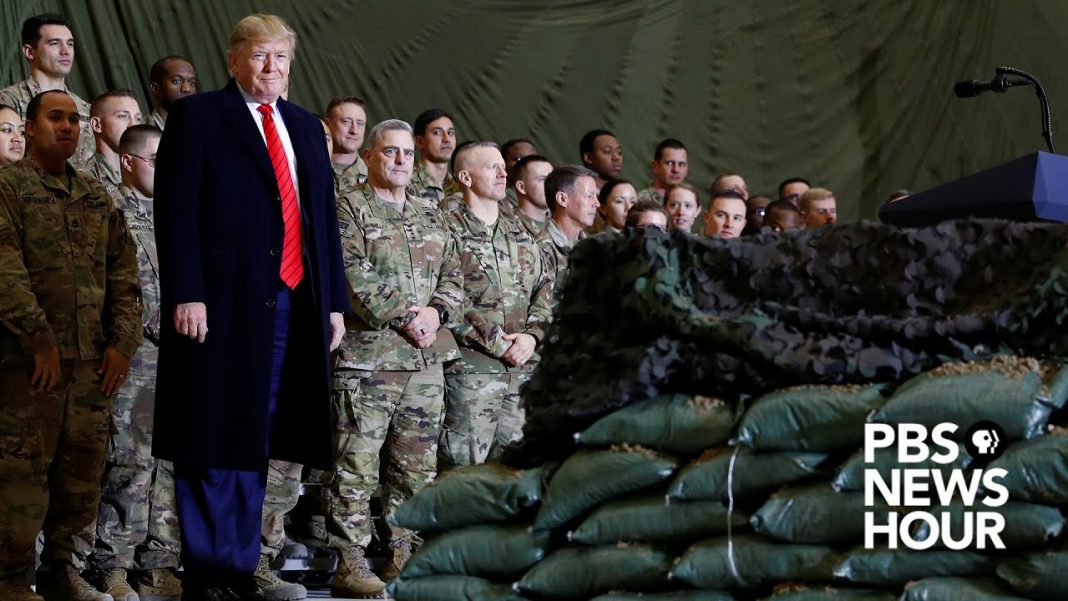Brig. Gen. Robert Spalding, former China strategist for the chairman of the Joint Chiefs of Staff and the Joint Staff at the Pentagon and author of Stealth War, talks about the threat of 5G with Patrick Bet-David.
The 5G Threat Transcript
Patrick Bet-David: When I think Trump tweet about something in 2014 and he said, remember China is not our friends or not or a ally and he got something like three hundred retweets.
China is not our friend. They are not our ally. They want to overtake us, and if we don’t get smart and tough soon, they will.
— Donald J. Trump (@realDonaldTrump) February 21, 2013
Patrick Bet-David: It wasn’t something big. He tweeted this back in 2014 or 2015. And then all of a sudden, one day, everybody in the news is talking about 5G and prior to that day we weren’t really talking about it. Then all of a sudden, hey, we got to be the leader on 5G. I’m like 5G. So I’m going to start looking at 5G. So I’m like 1G, 2G, 3G. 1G is the regular phone back in the days 2G is whatever, 3G is the iPhone, you know, 4G is there latest phone, and then now 5G is going to be changing again. And most people go to, a 5G is just a faster phone, right, because that’s what initially we’ve always seen the G linked to a phone. Oh my gosh, I can download a movie and 3.6 seconds now on Netflix, a 2-hour movie where before 3 minutes or 6 minutes, whatever, right. When you think about 5G, what do you think about 5G and the capabilities. And what it can really do to whoever has access to it?
Brig. Gen. Robert Spalding: That’s a good question. So if you go back to 2007 when the iPhone came. The top five in market cap were AT&T, General Electric, Microsoft, ExxonMobil and Shell. The phone comes out and in 2007, we have, I had one. 3D Network it’s not a very good, a very good experience. 4G network comes out, by the way, we’re the second country in the world to build a 4G network. Now you’ve got something, right. So when Steve Ballmer laughed at Steve Jobs, said we don’t need one of those. When you took the platform which was the iPhone and you married it up to the 4G network, which is the pipe for data, and was a fast enough pipe, now you can create the apps, services, and business models that in 10 years led to the top 5 and market cap being Facebook, Amazon, Netflix, Google, and Microsoft, right. So the Chinese see this and they’re like huh, the platform and the pipe.
So the smartphone, this thing, this iPhone, you know, which was the first one, Android, so Apple and Google, right, dominate the mobile platform that the app services business models that economy are built on. Now look at the iPhone, it’s a hardware, software tightly integrated closed, walled system like Steve Jobs liked and the data was encrypted. Why was the data encrypted? Why did San Bernardino happen? Because Apple’s an American company. They know you want privacy, they encrypt their phone. So now you got the platform, and Android also went on to encrypt thier platforms. They’re both encrypted, right. So private devices, take the cloud away from it, just look at the devices itself. Its meant to be a private device. Why? It’s American, American product.
Fast forward, you know, to 2009. China start to look at that, says okay, we want to dominate the next level, right. Not just the technology, we want the apps, services and business models be Chinese companies. And so Huawei gets hundreds of billions of dollars to develop 5G and ZTE, but then you have Baidu, Alibaba and Tencent. So they’re behind the Chinese firewall, they’re protected. You can’t have the fangs going in there. It just the bats that control the e economy within China. And then you start, at the same time you’re developing 5G, right, the platform, and I’ll get to that in a second, but you’re also developing Baidu, Alibaba and Tencent.
So now, when you walk into, and you’re starting to see the emergence of the 5G World in China. So you walk into a restaurant after you ordered your food and a camera picks you up and he says, David welcome, here’s your food, right. So you’re starting to get the feel of what a 5G world, and what it is, and what is a 5G world? The platform is the network. So this is mobile computing paired with a pipe. 5G is computing and networking combined on the same platform. So this goes away (holding smartphone). You walk outside your door and you say Uber. You don’t get on your phone and say I want and Uber, you just say Uber. A camera picks up your face or a microphone picks up voice.
Patrick Bet-David: Come on.
Brig. Gen. Robert Spalding: That’s what 5G is, that’s what 5G is. And then the Uber show up, the Uber, there’s a camera on the car that sees you, knows who you are, don’t have to ask you your name, you get in and go do wherever you want. You get out and you go do whatever you want. So, in this world, in the 4G world, this is a platform (holding smartphone). It’s yours, right? You don’t want to be, you don’t want to be part of that, all of that data. Remember we just talked about how do you influence society? You don’t want all that data to be out there about what you’re doing. Don’t carry on of these (Smartphone). Right, just opt out.
In a 5G world you cannot opt out. Who owns the data? This, (Smartphone), you could conceivably say, you lease the date on here you own, if you’re getting Google services, you don’t own that data. But in the 5G world, not only can you not opt out because it’s build around the city, it’s not in your phone anymore. Not only can you not opt out, you don’t know who owns the data. Everything that you do can be watched. And for every person by 2022, there’s going to be, for every, there’s two cameras for every, for every person there’s two, there’s two people for every camera in China by 2022.
Patrick Bet-David: They have a billion right now in surveillance, a billion camera’s in China right now.
Brig. Gen. Robert Spalding: With artificial intelligence for facial recognition, right. So all of this is getting built right now in China and who’s helping them do it, Microsoft Google, right. All these companies that want to deploy this world into our country. So Baidu, Alibaba and Tencent, that’s where the world goes. It goes from 2007, AT&T, GE and Microsoft to the fangs to the bats. Who owns the pipes? Me as the B2 guy, the first thing I look at in the country is where is the telecommunications. Got to take that out, number one. But, if rather than taking it out, you own or control it, so Huawei builds the pipes. Then because you’re behind the great firewall you built, the apps, services and business models of the 5G world, and like I said, you’re already starting to see that, you know, where your facial recognition is built into your interaction, when you go into restaurant, when you go into the store, when you go into a bank, you know everything’s about, you know, the devices connected. As you build the network, then those proliferate, so 4G network, 10,000 devices per square mile, 5G Network, 3 million devices per square mile. You’re not going to carry 12 smartphones. You may not even carry a smartphone.
Patrick Bet-David: 10 thousand to 3 million?
Brig. Gen. Robert Spalding: 10 thousand to 3 million, and that’s what 5G does. The connectivity explodes. Right, so that allows you put devices literally everywhere that can make your life more convenient, or can track you. There’s a bike D.C. It’s called Mobike. Have you seen these things, They are silver and orange. Look out for them next time you’re in DC. They’re silver and orange, called Mobike. They had when I was, in 2016, when I get to Beijing. You take your phone, and by the way, I took my, I took a phone, right, a phone that I threw away when I got home, and I had said
Patrick Bet-David: You threw it away?
Brig. Gen. Robert Spalding: I threw it away when I got home. Load all the apps on it that a Chinese person has so I can understand what they do. You never have to carry a wallet, you never have to carry a key. It’s all on your phone. You can pay any anybody, anywhere for anything, and they do. 900 people are on WeChat and they spend 90% of their time in app doing things, ordering airline tickets, buying food, whatever you want. You can have anything you want.
Patrick Bet-David: 900 people or 900 million?
Brig. Gen. Robert Spalding: 900 million people. Okay, so let me explain to you how, how effective what they built is. I have one of these guys working for me on one of these Mobikes. The Mobike is, it’s just parked there on the street with a lock on it. You go over you hit QR code on your phone, it unlocks the bike, you get on, you ride and you lock the bike. Okay, so where’s that data go. They knows it you. You got on that bike, you went two locations, okay, so, or you went to a location, so that data is available. So I have one of my guys, he gets on a Mobike, rides somewhere, has his iPad in the basket, gets off the bike, comes back to the embassy and realizes, ah, I forgot my iPad. Goes into the regional security offices, office, and says I forgot my iPad in my bike. He calls the local public security bureau and those guys call the guy that’s got his iPad on his phone, on his cell phone, and say, can you bring the iPad back to the Embassy. That’s how wired Beijing is right now.
About Robert Spalding
Brig. Gen. Robert S. Spalding III assumed the duties of Special Assistant to the U.S. Air Force Vice Chief of Staff in February 2018. (More by Robert Spalding)
About Patrick Bet-David
During the Iranian Revolution of 1978, Patrick Bet-David’s family had to escape to survive and ended up living at a refugee camp in Erlangen, Germany. At 12 years old Patrick found himself collecting cans & beer bottles to raise money that could help his family and get him a Nintendo. These childhood experiences had a major impact on his perspective of freedom, hard work and entrepreneurship. Today, he is CEO of PHP Agency, Inc. a financial services company with over 12,000 agents in 49 states and Puerto Rico and an active YouTube creator.
About Valuetainment
An entrepreneur channel created by Serial Entrepreneur, Patrick Bet-David. Valuetainment is referred to as the best channel for entrepreneurs with weekly How To’s, Motivation and interviews with unique individuals.






